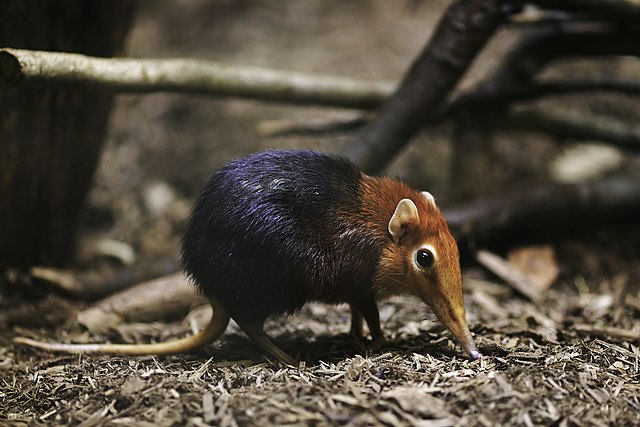Elephant shrews, also known as sengis, are small, insectivorous mammals native to Africa. While they are not actually shrews and are more closely related to elephants, they exhibit unique behaviors and communication strategies. Let’s unveil some of the secrets of elephant shrew behavior and communication:
1. Foraging Behavior:
- Elephant shrews are primarily insectivorous and have long, flexible snouts that they use to probe leaf litter and soil for their prey, which includes insects, spiders, and small invertebrates.

2. Diurnal Activity:
- Unlike many shrew species that are nocturnal, elephant shrews are typically diurnal, meaning they are active during the day.
3. Solitary Lifestyle:
- Elephant shrews are generally solitary animals, and they maintain individual territories. They are known for their agility and speed, enabling them to evade predators and find food.
4. Vocalizations:
- Elephant shrews produce various vocalizations to communicate with each other. These sounds can range from clicks and high-pitched whistles to rhythmic drumming on the ground or vegetation. These vocalizations are used for maintaining territory, attracting mates, and signaling danger.
5. Scent Marking:
- Like many animals, elephant shrews use scent marking to communicate. They have scent glands on their flanks, and they rub these glands on objects within their territory to mark their presence. This helps deter other shrews and provides information about their reproductive status.
6. Tail Behavior:
- Elephant shrews often use their tails as a communication tool. They may flick or lift their tails as a signal to other individuals, potentially indicating agitation, alertness, or readiness to interact.
7. Social Interaction:
- While primarily solitary, elephant shrews may engage in social interactions during the breeding season. Mating pairs may work together to build nests and raise offspring.
8. Parental Care:
- Female elephant shrews are responsible for raising their young. They give birth to relatively well-developed offspring, and the mother provides protection and nourishment until the young are ready to fend for themselves.
9. Territorial Defense:
- Elephant shrews are known for defending their territories against intruders, which they do by displaying aggressive behaviors, vocalizing, and using scent marking to establish their presence.
10. Sensory Perception:
- Elephant shrews have keen senses, particularly their sense of sight and smell. They rely on these senses to locate prey and detect predators or rivals.
Overall, elephant shrews are fascinating creatures with unique behaviors and communication methods. Their vocalizations, scent marking, and tail signals play essential roles in their daily lives, from foraging and maintaining territories to finding mates and raising their young. Studying and understanding these behaviors are critical for conservation efforts and for gaining insights into the lives of these remarkable African mammals.











